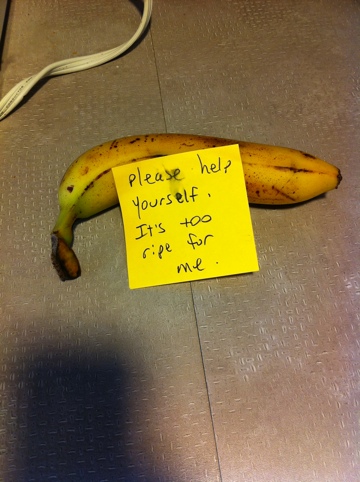You have no fucking idea what it’s like to be me.
— Steve Jobs
While I have deliberately avoided reading most of the critical reaction to Walter Isaacson’s biography of Steve Jobs, the broad consensus seems to be that Isaacson had the biographer’s opportunity of a lifetime, and blew it. Despite having unprecedented access to one of the most relentlessly private of public figures, Isaacson’s is a book without insight: his Steve Jobs is the same collection of contradictory impulses he has always been, a self-centered, unlikeable man who somehow created products that people adored, changing whole industries in his wake. In a world full of assholes, critics complain, what set Jobs apart? What made it possible for him to do the extraordinary things he did?
Let me say first that I agree in principle with the critics: Steve Jobs is a lousy book. I believe I arrived at the conclusion via a different route from a lot of other people, and I’ll get into that soon. First, let’s consider the argument, articulated well by Thomas Q. Brady, quoted on Daring Fireball:
I know lots of people that could be described [as “self-absorbed, immature, emotionally unstable control-freaksâ€], and none of them started a company in their garage that became one of the most valued corporations in the world. What made Jobs different? This isn’t really answered.
Actually it is, at least to a point. There is the asshole half of the Jobs equation, and then there is the other half, which Isaacson documents and which everyone already knows about: his fanatical obsession with spare, minimalist design; his belief that he was destined for greatness and his determination to achieve it; his tremendous persuasiveness; and his knack for infusing technology products with an underlying human friendliness. Unlike Jobs’s more unsavory characteristics, these are not common traits. Combine them with the ones above, and the story of Steve Jobs begins to seem, if not inevitable, then at least somewhat plausible.
Our civilization has spent centuries debating the origins of genius — even the definition of genius — and yet with each new transformational figure that comes along, we start the debate all over again. The truth is that genius has no formula. It cannot be predicted, reconstructed, feigned (for very long) or dissected, at least not in any way that is remotely edifying. You can quantify the factors that make it possible for people to be successful; for instance, Jobs acknowledged how lucky he was to grow up in Silicon Valley, surrounded by people who could nurture his talents and fire his ambitions. Had his parents opted to raise him in the suburbs of Wisconsin, we’d likely never have heard of Steve Jobs. But creativity — or inventiveness if you prefer, since we don’t tend to associate creativity with non-artistic pursuits — is a process that ultimately operates beneath the threshold of awareness. Indeed, it can operate in no other way; inspiration is not an algorithm.
Many people seem to have expected Isaacson’s book to provide the missing piece of the puzzle — the key that would finally unlock the secret of his genius and forever solve the enigma of Steve Jobs. They were never going to get what they wanted, because it didn’t exist. There was no “one more thing.†The enigma is its own solution.
I don’t want to give the impression that any inquiry into the inner workings of a genius is futile, or that Isaacson should be let off the hook for writing a superficial book about a man who was anything but. I merely suspect that no one could have written an entirely satisfying book on Steve Jobs, because the things people want to understand about him aren’t really explicable. What made Jobs different? How did he look at a Rio MP3 player and conceive what would become the iPod, where everyone else just saw a clunky, half-assed music player? You can posit various intermediary reasons — because he was driven to achieve perfection, because poor design caused in him something akin to physical pain — but what do those explain? What are the reasons for the reasons? The truth is that Steve Jobs did what he did because his unique blend of innate qualities, combined with the people and places that helped to shape his worldview, allowed him to. His career was the result of a confluence of circumstances so unlikely as to appear impossible. “What made Steve Jobs different?†is more a rhetorical question than an actual one. It is a way for our mathematically hampered brains to acknowledge the baffling unlikelihood of his achievement — the incredible fact that in this world, a man like him could exist at all.
So having put that issue in perspective, what is my primary objection to the book? I will put it in straightforwardly Jobsian terms:
The writing sucks. Continue reading →
